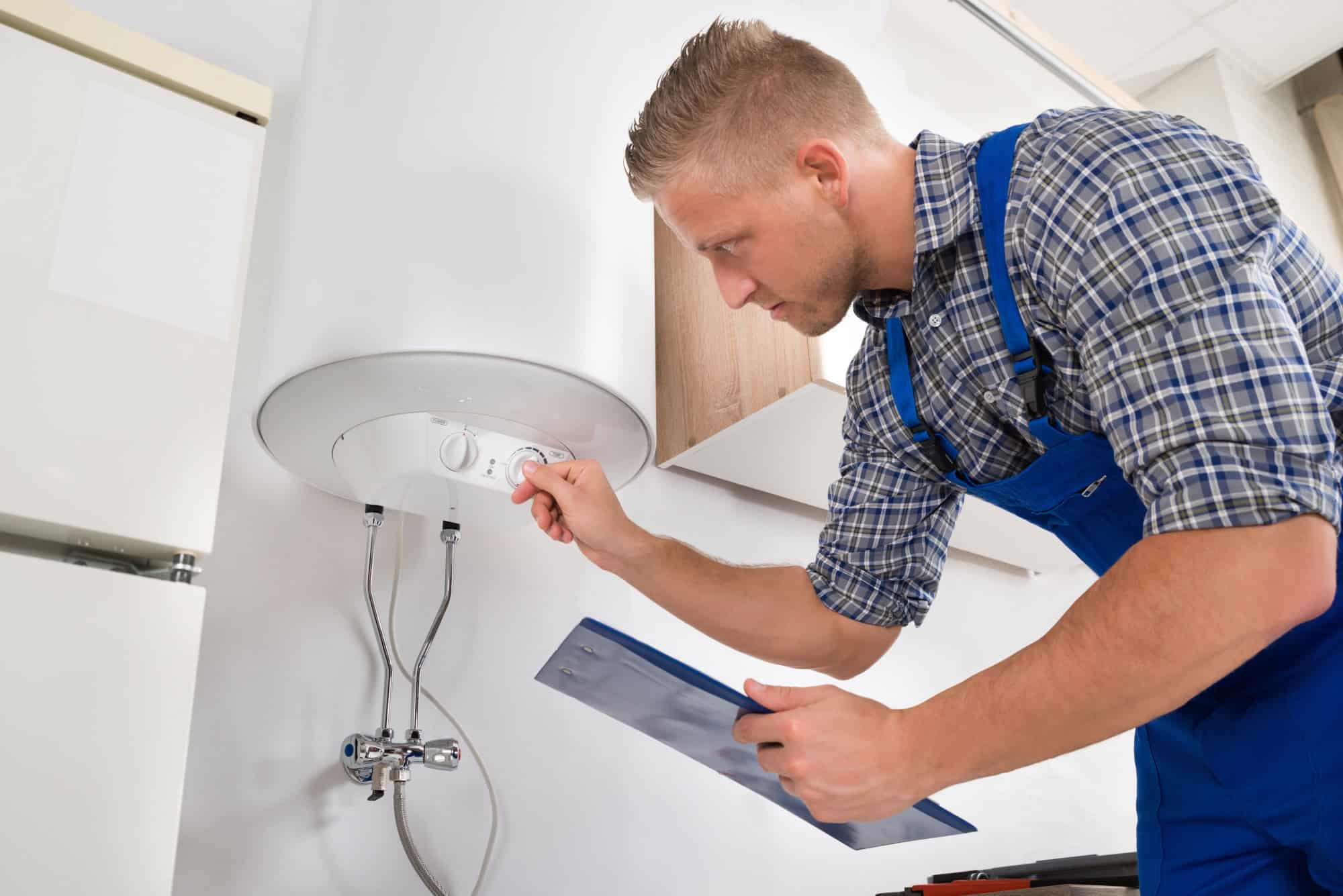
It’s probably safe to believe that most homeowners have had at least one experience with a broken water heater. It may be the result of a plumbing failure somewhere else in the house. But if your home is without hot water for any length of time, you need to address the issue immediately.
Meanwhile, here are some tips on what may be wrong with the equipment and how to fix such issues. When you notice any alarming signs, call a 24-hour plumber immediately.
Hot Water Heater Problems Checklist
Water Leaks From Beneath the Tank or Around Its Fittings
This is likely due to corrosion or rust around bolts and a dip in the tank. The drip pan placed under the water heater may be overflowing with water, and there is probably no heating going on inside. You’ll need to drain off excess water and tighten all fittings for a quick fix.
Tank Won’t Turn On
This can be due to various reasons: (1) the unit not receiving power; (2) there is no gas supply; or (3) the thermostat has been turned down too low, causing it to go into protection mode. Check the circuit breaker panel and make sure that everything is in order before calling your local professional to figure out the issue.
Hot Water Runs Out Much Faster Than Usual
If you’ve noticed that the water is warming up slower than usual, you need to check for two things. First, make sure that sediment isn’t built up inside the tank. You can get rid of this easily by using a garden hose to flush out your heater three times over a week or so.
Another thing to look at is an imbalance between hot and cold water lines leading into the machine. Check these lines with a T-bar to see which one has less volume of water moving through it.
Water Leaks from Crawl Spaces
If you’re keeping your homeowner’s insurance current, you shouldn’t have any problems with major floods damaging everything in its path, especially if you’ve installed insulation on top of it. The only time that might change is if the leak occurs somewhere that you cannot see.
So, consider checking your crawl spaces now and then because this can indicate corrosion or rust inside the location where pipes are housed.
Loss of Pressure
You’ll want to have a 24-hour plumber come by for an inspection if there seems to be a significant drop in water pressure. The issue may lie with corroded piping, especially around threaded joints. Compared to leaks which can be easily patched up, replacing specific plumbing components requires professional installation.

6 Tips for Water Heaters Repairs Given By Professionals
A pro has the tools and training to solve your water heater problems in no time. Here is some of the work that they can do for you:
- They will inspect corrosion inside pipes leading into the tank as well as debris buildup on the lid, sediment buildup inside water heater, thermostat settings, valves, temperature/pressure relief valve, recirculation pump or bypass loop, drip pan set up around machine, the water flow rate through lines connected to the unit, gas line installation and connection process to electrical supply cable.
- Plumbers carry replacement parts with them, so don’t be surprised if they tell you what needs to be done before giving an estimate. On average, though, it takes about 3 hours for them to diagnose the problem, remove faulty parts and replace them with new ones, test the water heater for leaks, reinstall it and show you how to use it.
- If there are any signs of corrosion buildup on fittings, don’t try to patch these things up yourself. A local professional can repair this issue before anything else during the inspection.
- While most water heater tank repairs can be handled by homeowners themselves, more complicated problems may require a plumber’s help. So if you’re not confident about making appliance repairs at home, leave everything to your local HVAC professionals who know what they’re doing more than you do.
- It is easy to forget about such things as sediment buildup inside the machine, so don’t be afraid of trying to take care of these kinds of issues yourself. However, you need to make sure that you use a garden hose to flush out the heater three times over a week or so.
Any rust or debris buildup on water lines or any other part leading into the unit can actually cause more damage down the line.


